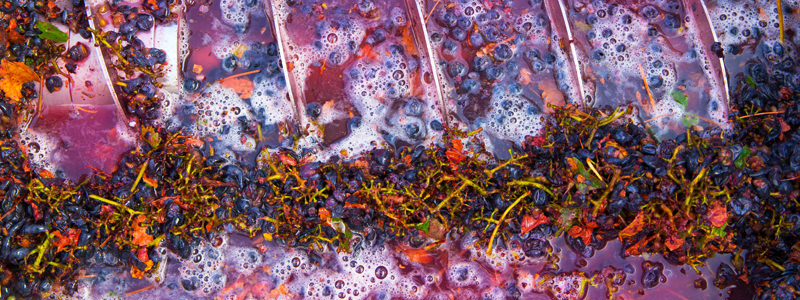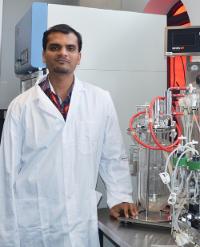

Avinash Karpe is a 26-year-old PhD student at Australia’s Swinburne University of Technology who is doing some fascinating research into different wine related products. His chemistry research involves turning wine production waste products — skins, pulp, stalks and seeds — into biofuels including ethanol.
Ever fill your car up with E85 ethanol, which is derived from corn? Some day that blend — 85% ethanol and 15% gasoline — might be a wine blend instead of a corn blend!
Here’s how it all might work, as explained in a press release published by Swinburne University of Technology:
Unlike other agricultural by-products, [wine] waste has limited use as animal feed due to its poor nutrient value and digestibility. It is also not suitable as compost because it doesn’t degrade. Thus a majority of this grape waste ends up as toxic landfill.
As part of his PhD research, Swinburne student Avinash Karpe has been investigating how to break down this woody material composed of cellulose, pectins and lignins into simpler compounds that can be used to create other things such as ethanol or other biofuels.
He performed a series of experiments to develop the best procedure for degrading winery biomass waste.
“Various fungi are known to degrade this waste by generating an array of enzymes,” Mr Karpe said. “These enzymes convert the waste to soluble sugars which can then be converted into other products.”
He discovered that a 30-minute heat activated pretreatment aided in the breakdown of these biomolecules.
When can we expect to be zipping around in cars fueled by wine?
“We have demonstrated this technique in the laboratory, but this process can be scaled up to an industrial scale,” Chair of Swinburne’s Department of Chemistry and Biotechnology, Professor Enzo Palombo, said.
Vice visited Karpe’s lab to chat about the research. The most interesting question answered was why you use wine. Karpe’s professor, Enzo Paolombo provided a good answer:
“The US uses corn or corn starch and turns that sugar into ethanol. In Brazil, it’s sugar cane,” Professor Palombo notes. “What we’re saying is let’s not use things which are potentially food. Why are we turning corn into ethanol? Corn is a food—it’s just wasteful. And the large push now is to turn non-food biomass into fuel. So we’re sort of killing two birds with one stone. We are taking a non-food material which is winery waste, and an industrial pollutant, and turning it into something useful.”
Read more at Swinburne’s website and at Vice.
Header Image via Shutterstock.com
